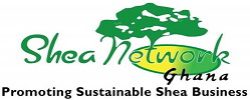Shea Network Ghana (SNG) joined key stakeholders and project partners for a Partnership Learning Meeting under the Ghana Shea Landscape Emission Reductions Project (GSLERP), held at Mariam Hotel in Tamale. The session served as a platform for partners to reflect on project implementation progress, share field experiences, and strengthen collaborative learning across the shea landscape.
SNG was represented by Mr. Ibrahim Iddrisu, the organization’s GSLERP Project Officer, alongside other staff members. The team actively engaged in discussions, presenting insights from SNG’s ongoing work with communities—particularly on sustainable shea practices, environmental conservation, and women’s empowerment.
The meeting featured key presentations from the Global Shea Alliance (GSA), the United Nations Development Programme (UNDP), and the Forestry Commission of Ghana. These institutions provided a comprehensive review of the GSLERP’s progress to date, highlighting successes, lessons learned, and strategic next steps. Presenters emphasized the importance of coordinated efforts, community participation, and climate-smart solutions in sustaining the project’s impact.
Representatives from participating civil society organizations, including SNG, shared on-the-ground experiences around land use, forest restoration, gender inclusion, and capacity building. The session facilitated open dialogue on challenges encountered and innovations developed during implementation across various ecological zones.
In a post-meeting remark, Mr. Ibrahim Iddrisu stressed the importance of the learning engagement, saying: “This meeting creates space for shared reflection and solution-oriented dialogue among partners. SNG remains committed to contributing to GSLERP’s vision of reducing emissions while supporting resilient livelihoods for women and communities in the shea belt.”
GSLERP is funded by the Green Climate Fund (GCF) and implemented by the Forestry Commission of Ghana in collaboration with UNDP, GSA, and other partners. The project seeks to reduce emissions from deforestation and forest degradation, while enhancing rural livelihoods and promoting sustainable land use practices in the northern savannah ecological zone.
The Partnership Learning Meeting reinforced the collective commitment of all stakeholders to advance environmental sustainability, strengthen the shea value chain, and empower local communities—especially women—through inclusive and climate-resilient development.
